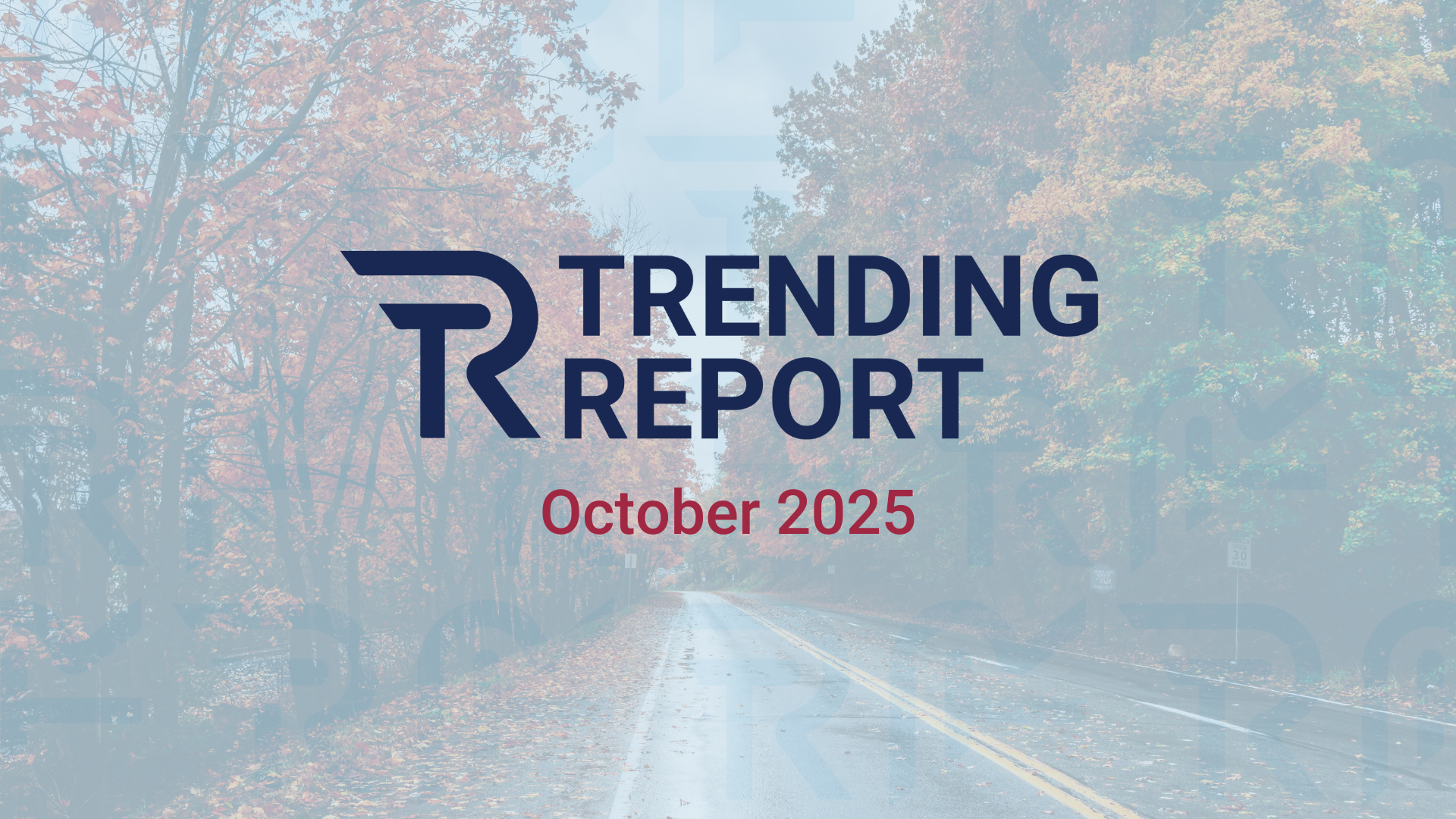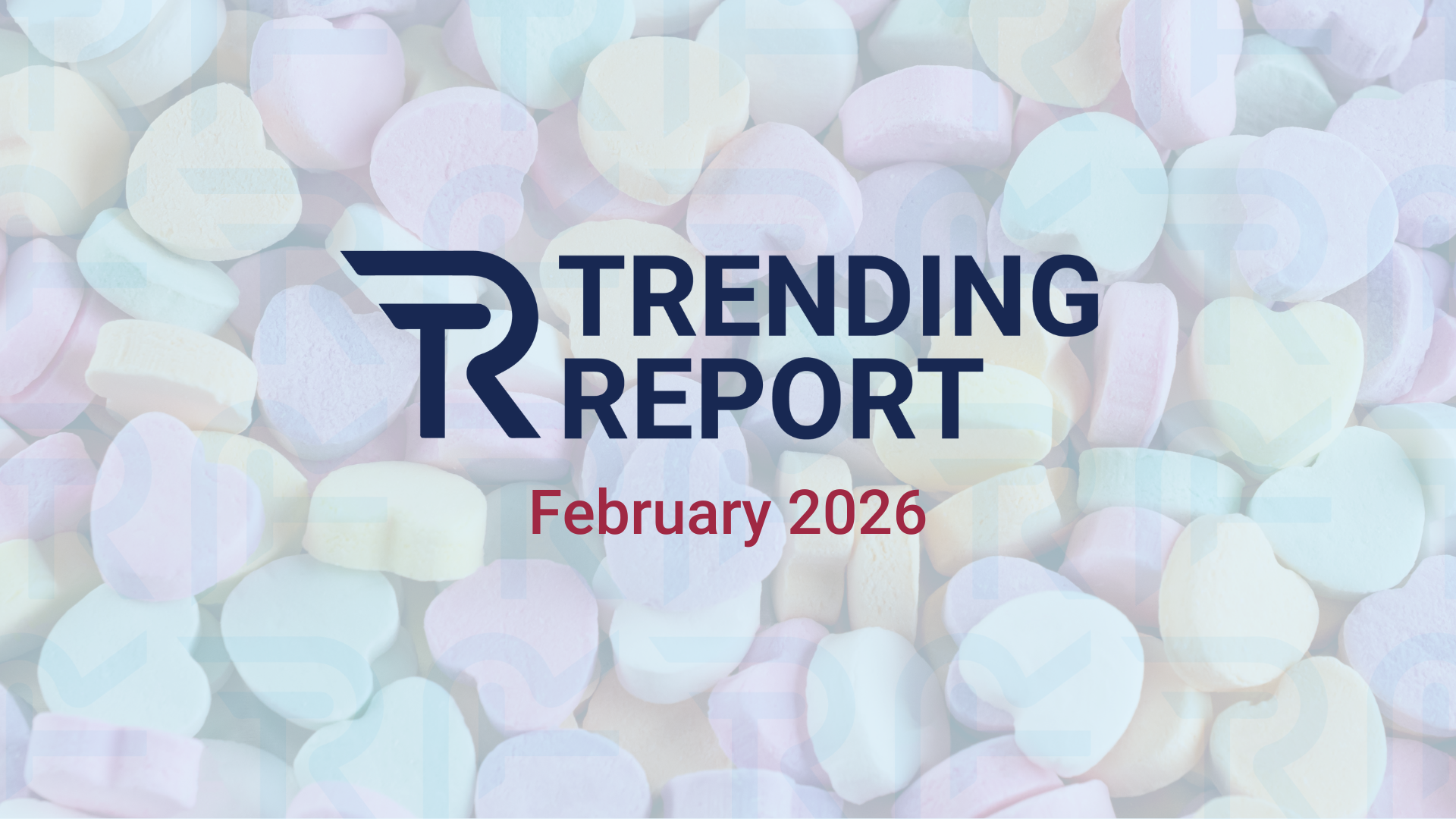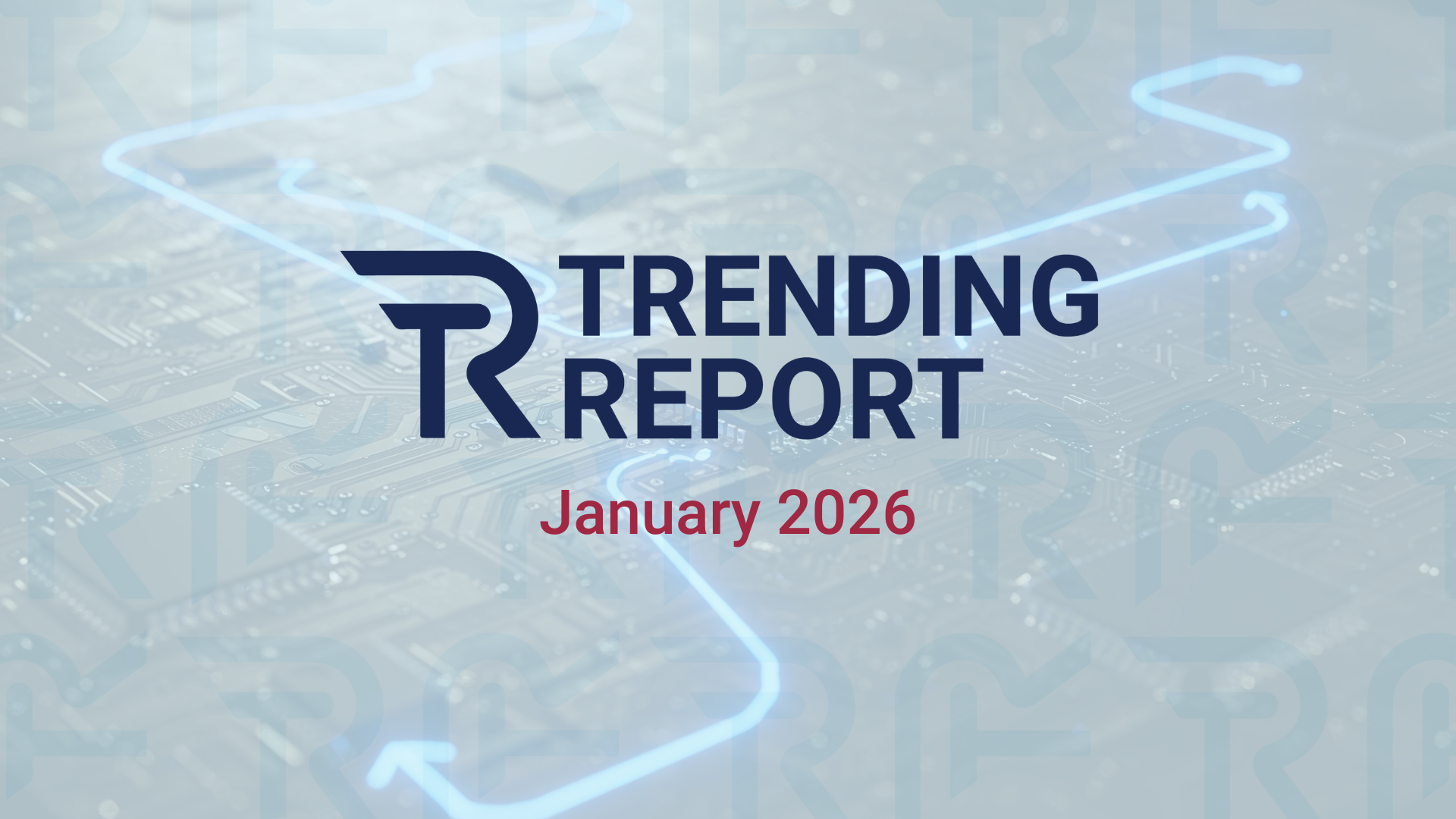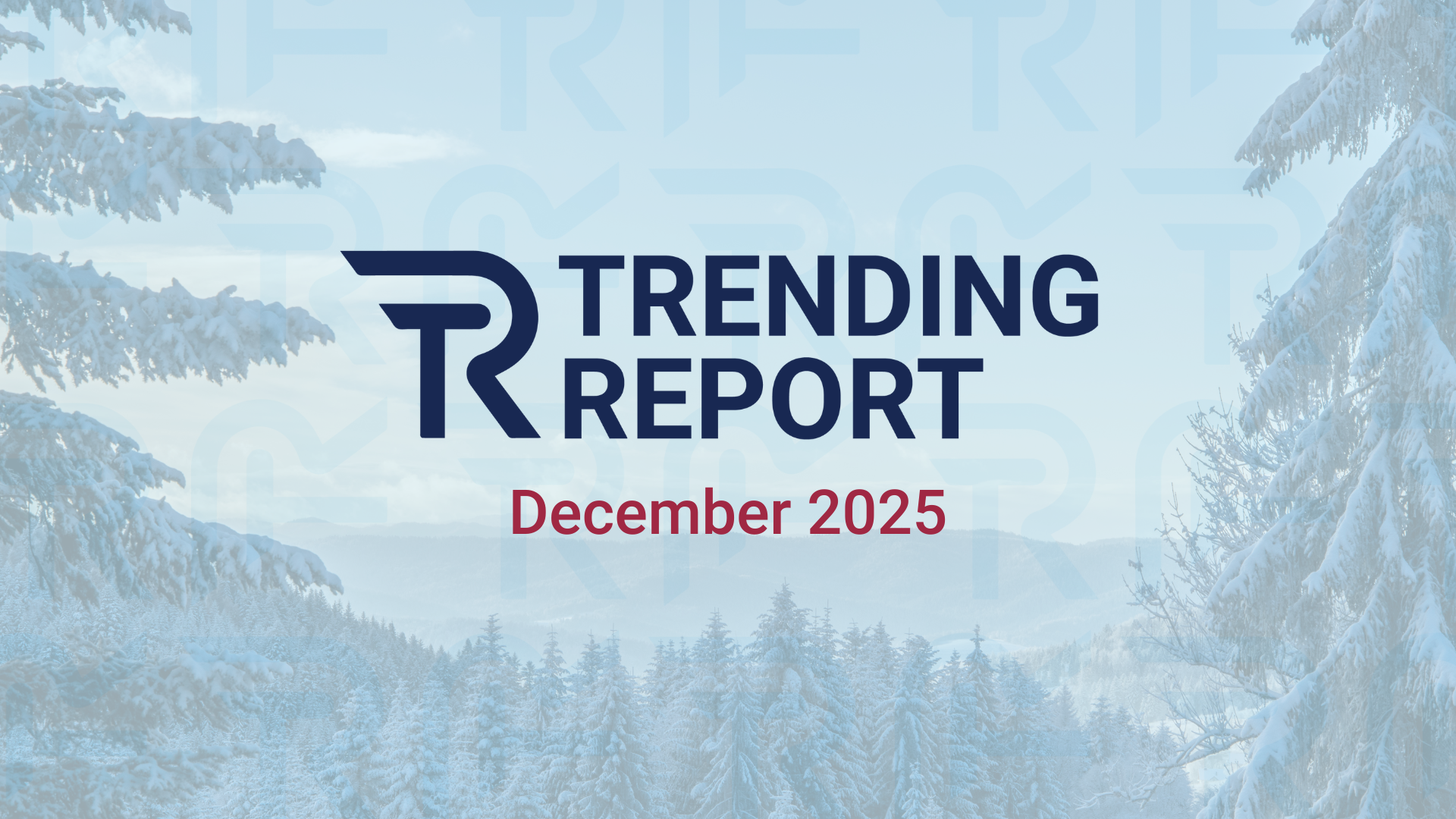What’s Trending: September’s Market Rally, Stock Market Updates, & AI

In this October’s Trending Report, Kevin Roskam breaks down why sticking to a disciplined, unemotional investment strategy continues to pay off—especially when the headlines say otherwise. Despite September’s reputation as a historically weak month for the markets, the S&P 500 gained 3.5%, showing once again that trends—not feelings—drive results. Kevin dives into what fueled the rally, from the Fed’s rate cut to tech sector strength, and explores how theme-based investing—like AI, automation, and clean energy—is shaping market momentum. He also reminds us that long-term success may involve tuning out political noise and short-term emotions. Tune in for key takeaways, market charts, and insights designed to help you stay focused on the data—not the drama.
In this month’s edition of the Trending Report, Kevin Roskam takes viewers through a timely reflection on what the markets have been doing—and what investors can learn from them. He begins by revisiting a familiar sentiment among investors: September has long carried the reputation of being a poor month for stocks. Historically, it’s the time of year when investors brace for losses, scale back risk, or even pull money off the table in anticipation of turbulence. But this year, those who followed that emotional instinct missed out on a surprisingly strong rally. The S&P 500 gained roughly 3.5% in September, a month that history told us would likely be negative. For those who stayed invested with a disciplined, long-term focus, it turned out to be a powerful reminder of the value of patience and process over prediction.
Roskam uses that example to drive home one of the fundamental truths of investing: the past does not predict the future. Markets are living, breathing systems influenced by thousands of variables—economic data, policy shifts, technological developments, investor psychology—and while history can provide useful patterns, it cannot serve as a playbook. In the weeks leading up to September, investors faced a steady stream of headlines warning of potential threats: inflation concerns, speculation about interest rate changes, uncertainty surrounding tariffs, and even legal disputes that might affect policy. These stories had many people feeling uneasy, ready to “play it safe.” Yet the market responded by climbing instead. The lesson, as Roskam emphasizes, is that markets rarely move in direct alignment with our feelings. A disciplined, data-driven approach often runs counter to what emotions urge us to do—and that’s exactly why it works over time.
One of the defining events of the month was the Federal Reserve’s decision to cut interest rates by a quarter of a percentage point. The move was widely expected, but it nonetheless helped fuel positive momentum in equities. The market reacted favorably, particularly within the technology sector, which once again led the way. Tech’s strength was a key driver of September’s gains, with innovation-related companies benefiting from renewed optimism. Not all areas of the market participated equally, however. Real estate continued to struggle as higher borrowing costs weighed on the sector, and energy stocks lagged due to lower oil prices. Still, across the board, more sectors finished positive than negative—a sign of broad market health that defied expectations.
Roskam then turns his attention to what he calls “thematic investing,” a growing trend that focuses on long-term themes rather than traditional sectors. He explains that themes such as artificial intelligence, automation, clean energy, and blockchain have been attracting large inflows of capital as investors look to participate in transformative technologies. In September, Bitcoin-related ETFs saw the highest inflows, followed closely by AI and automation. Other popular themes included Chinese technology, nuclear energy, and various innovation-oriented funds. What makes thematic investing interesting, Roskam notes, is that it represents a more forward-looking mindset. Rather than focusing solely on corporate earnings or cyclical sectors, investors are seeking opportunities in ideas—technologies and industries that have the potential to redefine the future economy.
Of course, these themes also tend to be more volatile. The funds drawing the most attention are often those tied to riskier, speculative assets. But that volatility isn’t inherently bad when it’s managed properly. Roskam emphasizes that professional money managers often make calculated, formulaic decisions about when to take risk and when to pull back. Some do this on a daily basis, others weekly or monthly, but all share the same objective: managing exposure based on data, not emotion. This kind of unemotional process—using predefined rules to determine when to be in or out of certain markets—is the backbone of risk-managed investing. It allows investors to participate in growth opportunities while maintaining safeguards against major downturns.
As the report continues, Roskam widens the lens to examine the broader context. Looking at the S&P 500 over the past five years, he points out that despite the frequent bouts of volatility, the long-term trajectory remains upward. Even the pullbacks seen earlier in the year, between March and May, were followed by a recovery to new highs. Over any short stretch of time, the market can be unpredictable and unnerving, but zooming out shows that disciplined investors may be rewarded for their patience.
Roskam also addresses one of the most emotionally charged influences in investing: politics. Quoting another advisor, he notes, “Nobody wins when they make investment decisions based on politics.” He explains that political bias is one of the most dangerous emotional triggers for investors because it can cloud judgment and lead to reactionary decisions. Whether it’s the current administration, the previous one, or upcoming elections, political opinions should never dictate financial strategy. The market has continued to grow through countless administrations and policy shifts. The five-year S&P chart, he says, serves as proof that political feelings don’t correlate with investment outcomes. What matters is maintaining perspective and focusing on what the data actually shows.
Throughout the video, Roskam returns to a central theme: the importance of focusing on trends rather than feelings. The headlines of the day are designed to provoke emotion—fear, excitement, anxiety—but successful investing may involve tuning that out. By tracking measurable trends such as sector strength, asset flows, and relative momentum, investors can make informed decisions without being swept up in market noise. In September, for example, the movement of money into technology and innovation funds reflected growing optimism around those sectors, even as other areas like real estate struggled. Observing where capital is flowing can provide valuable insight into the market’s underlying sentiment—without the need to speculate or predict.
As he wraps up, Roskam acknowledges the uncertainty that lies ahead. No one knows what October will bring. There will always be new headlines, new data points, and new reasons to worry. But uncertainty is not the enemy; it’s a permanent feature of the market. The real danger comes from allowing emotion to dictate decisions. The antidote, he says, is a disciplined, unemotional approach—one built on formulas, rules, and data rather than impulse. That’s what gives investors the best shot at long-term success.
He concludes by restating a core belief: short-term emotions kill long-term plans. Investors who stay disciplined, who trust the process even when it feels uncomfortable, are the ones who ultimately achieve their goals. Markets will always test patience and resolve. But those who resist the urge to react—who stay invested, who rely on structured strategies, and who focus on the trends that matter—are the ones positioned to benefit when the dust settles.
In the end, Kevin Roskam’s October Trending Report is both a reflection and a reassurance. It’s a reminder that while the headlines may change, the principles of successful investing do not. Discipline, data, and patience still win over fear, feelings, and guesswork. The market will have its ups and downs, but those who keep their emotions in check and stay focused on the long-term view will continue to find opportunity in the trends.
--
The Trending Report is a monthly commentary series that explores topical trends taking place within the current market and economy. It aims to provide clarity and encourage Advisors and Investors as they navigate and make sense of current market conditions. The ongoing battle between short term emotions and the commitment to long term investing is real. This series seeks to help Advisors and Investors focus their energy on long term success. Hosted and published by the investment professionals at USA Financial, each episode offers valuable commentary and analysis into various economic factors and market movements. By tuning in, our host breaks down complex topics into easy-to-understand information.
The Trending Report is also published via a podcast for easier, on-the-go listening. Subscribe today via Apple Podcasts, Google Podcasts, or your preferred podcast listening ser
Related Posts

What’s Trending: The Love, Fear, and FOMO Driving February Markets
In this episode of the Trending Report, host Tyler Krzciok explores why February is the month when even the most disciplined investment intentions start to slip. After a confident and structured January, many investors begin questioning their strategy as headlines intensify, markets wiggle, and hot themes take over the conversation. Tyler breaks down why old habits reappear, how emotions like love, fear, and FOMO quietly steer decisions, and why formula‑driven processes help clients stay grounded when impulse tries to take over. If you're helping clients maintain clarity in a noisy environment, this episode shows how strong frameworks—not strong feelings—keep investors on track.

What’s Trending: 2025 Market Recap and 2026 Outlook for Advisors
In this episode, host Tyler Krzciok recaps the resilience of 2025 despite rising rates, trade tariffs, and a historic government shutdown. Discover which sectors drove S&P 500 growth, why commodities like gold and silver soared, and what themes underperformed. Then, look ahead to 2026: the indicators to watch, sectors with opportunity, and how top advisors are approaching client conversations. From AI and automation to diversification and formulaic investing, this episode is packed with insights to help you stay disciplined and focused on long-term success.

What’s Trending: Diversification Beyond Assets for Long-Term Success
As 2025 comes to a close, the S&P 500 is up nearly 18% for the year—but what does that mean for your portfolio? In this December Trending Report, Kevin Roskam breaks down the year’s market performance, the role of trending strategies, and why diversification by time and philosophy matters more than ever. Learn how unemotional, disciplined investing helps you navigate volatility and stay focused on long-term success.

What’s Trending: The Love, Fear, and FOMO Driving February Markets
In this episode of the Trending Report, host Tyler Krzciok explores why February is the month when even the most disciplined investment intentions start to slip. After a confident and structured January, many investors begin questioning their strategy as headlines intensify, markets wiggle, and hot themes take over the conversation. Tyler breaks down why old habits reappear, how emotions like love, fear, and FOMO quietly steer decisions, and why formula‑driven processes help clients stay grounded when impulse tries to take over. If you're helping clients maintain clarity in a noisy environment, this episode shows how strong frameworks—not strong feelings—keep investors on track.

What’s Trending: 2025 Market Recap and 2026 Outlook for Advisors
In this episode, host Tyler Krzciok recaps the resilience of 2025 despite rising rates, trade tariffs, and a historic government shutdown. Discover which sectors drove S&P 500 growth, why commodities like gold and silver soared, and what themes underperformed. Then, look ahead to 2026: the indicators to watch, sectors with opportunity, and how top advisors are approaching client conversations. From AI and automation to diversification and formulaic investing, this episode is packed with insights to help you stay disciplined and focused on long-term success.

What’s Trending: Diversification Beyond Assets for Long-Term Success
As 2025 comes to a close, the S&P 500 is up nearly 18% for the year—but what does that mean for your portfolio? In this December Trending Report, Kevin Roskam breaks down the year’s market performance, the role of trending strategies, and why diversification by time and philosophy matters more than ever. Learn how unemotional, disciplined investing helps you navigate volatility and stay focused on long-term success.

